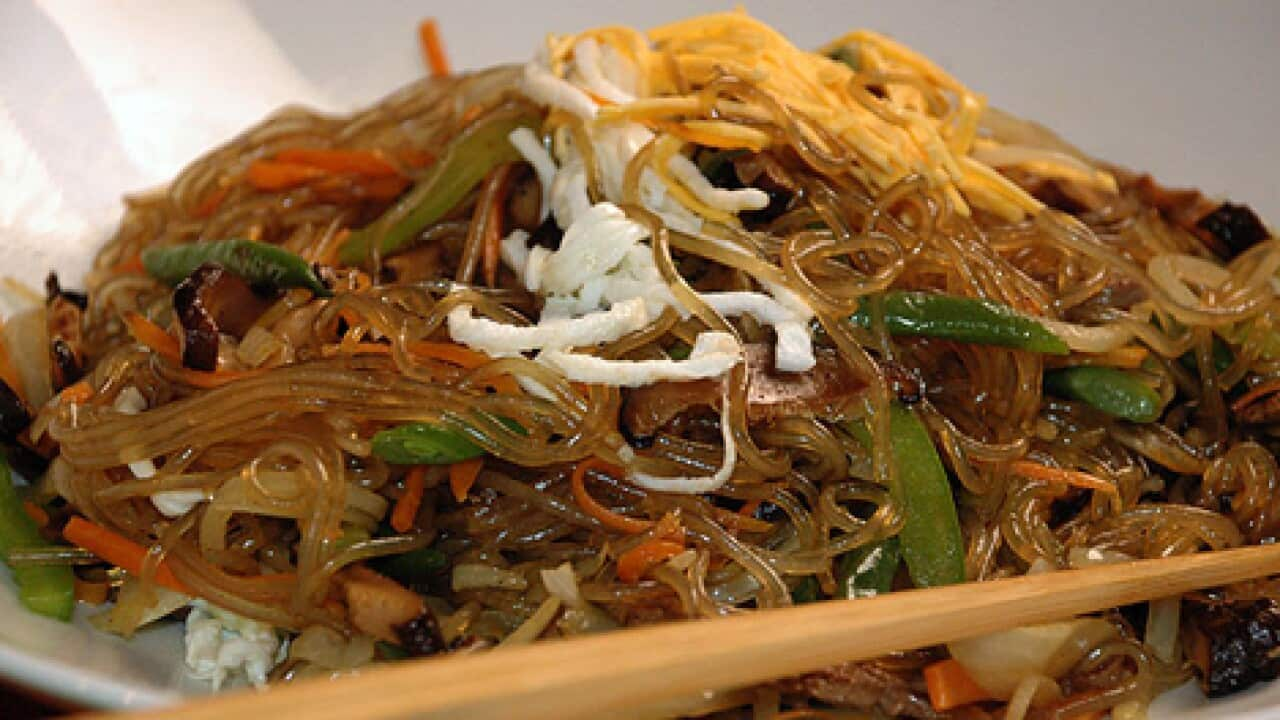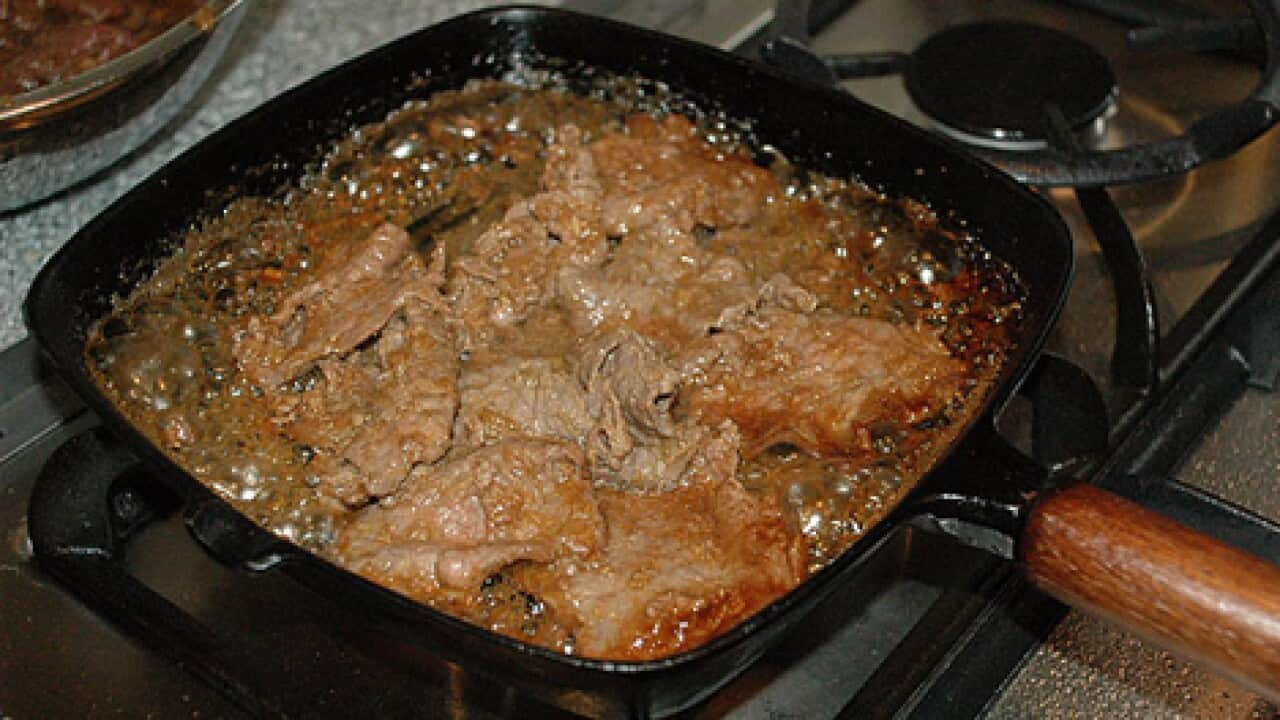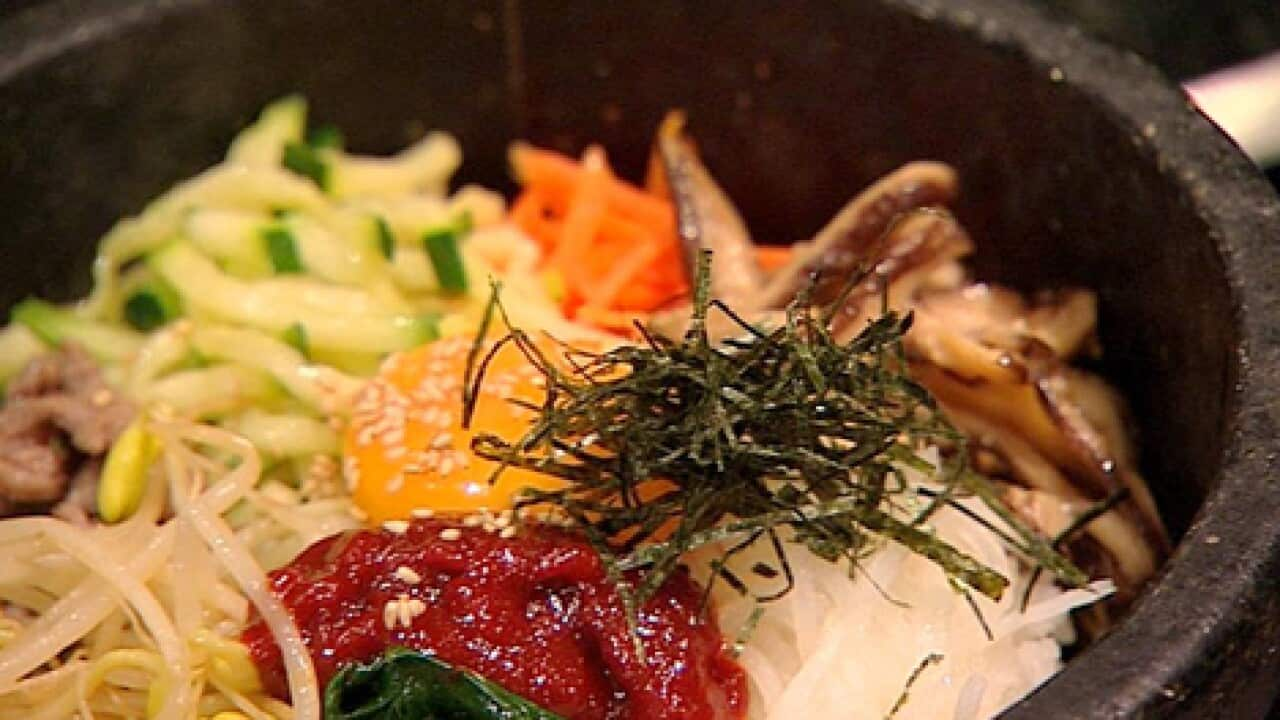Much of the food that exists in Korea today and the customs surrounding it have come from royal cuisine and the complex customs of the ancient court. The food is a study in balance with careful consideration given to temperature, spiciness, colour and texture along with considered presentation.
Starting with ritual bowls of rice and soup, the main meal is built around numerous shared side dishes selected to complement each other. The number of side dishes may vary from two to a dozen or more but everyday meals will include at least a few. All dishes are served at once to share, rather than in courses. A Korean banquet consists of many dishes cooked in various ways, including being steamed and simmered, pan-fried and stewed, fermented and raw.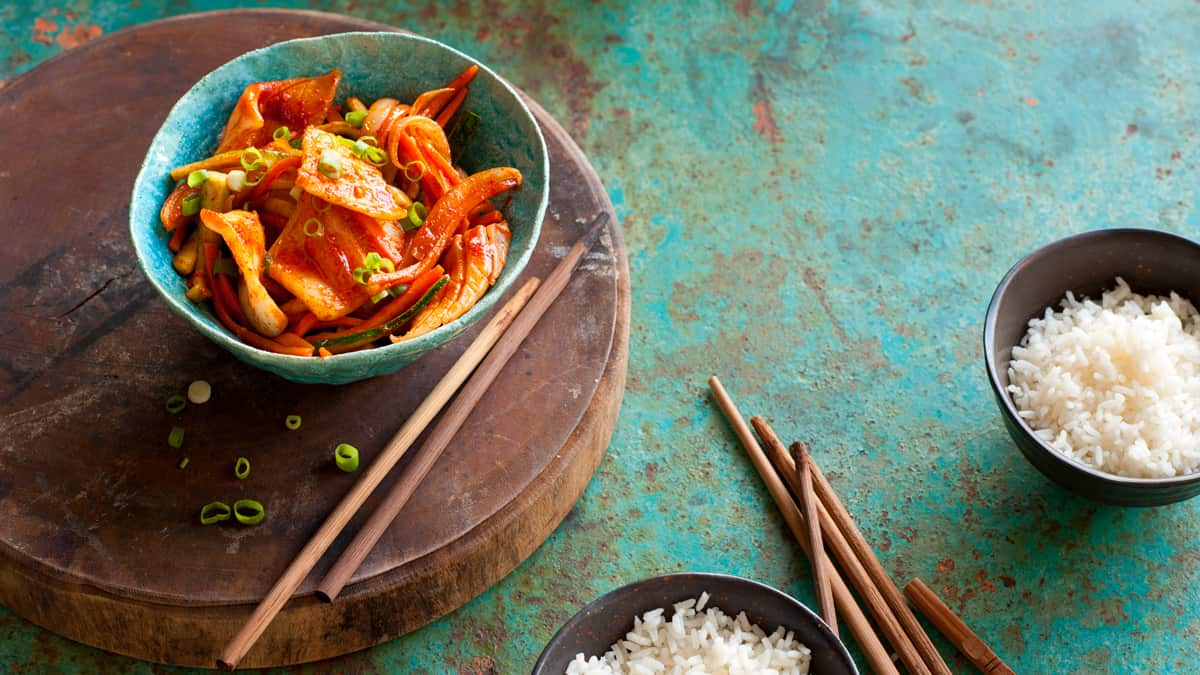 Another cornerstone of Korean food is rice, which forms the backbone of almost every meal, although is sometimes replaced with noodles. Because Korea is a peninsula, seafood is also very popular.
Another cornerstone of Korean food is rice, which forms the backbone of almost every meal, although is sometimes replaced with noodles. Because Korea is a peninsula, seafood is also very popular.

Stir-fried squid (ojingeo bokkeum).
The Koreans have perfected the art of preserving food, so many side dishes are picked, fermented or salted and many are spicy. Kimchi, Korea’s famous spicy cabbage, which has over a hundred varieties using different vegetables, is a constant of every meal. It is adored for its sour tangy crunch as well as being a digestive aid. Other popular spices and sauces include: sesame and sesame oil, chilli pepper paste (kochujang), soybean paste (daenjang), garlic, ginger and chilli pepper flakes. Korean food tends to be intensely flavoured, spicy and pungent.
Other popular spices and sauces include: sesame and sesame oil, chilli pepper paste (kochujang), soybean paste (daenjang), garlic, ginger and chilli pepper flakes. Korean food tends to be intensely flavoured, spicy and pungent.

Kimchi mandu. Source: Feast magazine
Traditional restaurants often feature charcoal grills in the middle of the table - a type of indoor barbecue. Paper-thin slices of marinated meat (bulgogi – literally "fire meat") or beef ribs (kalbi) are grilled, cut into pieces, and wrapped in lettuce leaves with garlic, chilli and soybean paste. They're eaten in one bite as it's considered the height of rudeness to bite into a lettuce parcel.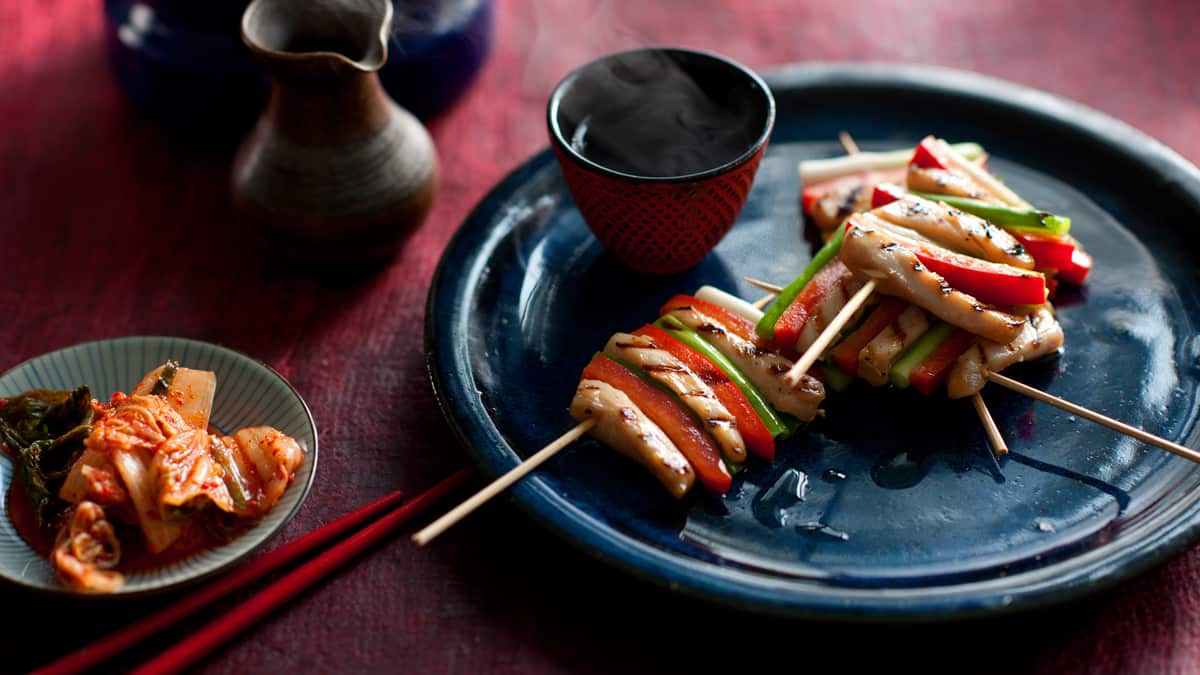 Koreans also place great importance on the role of food as medicine, using exotic ingredients such as dried persimmon, red dates (jujube), pine seeds, chestnut, gingko, tangerine and ginseng in their cooking and also in specially brewed teas.
Koreans also place great importance on the role of food as medicine, using exotic ingredients such as dried persimmon, red dates (jujube), pine seeds, chestnut, gingko, tangerine and ginseng in their cooking and also in specially brewed teas.

Chicken skewers
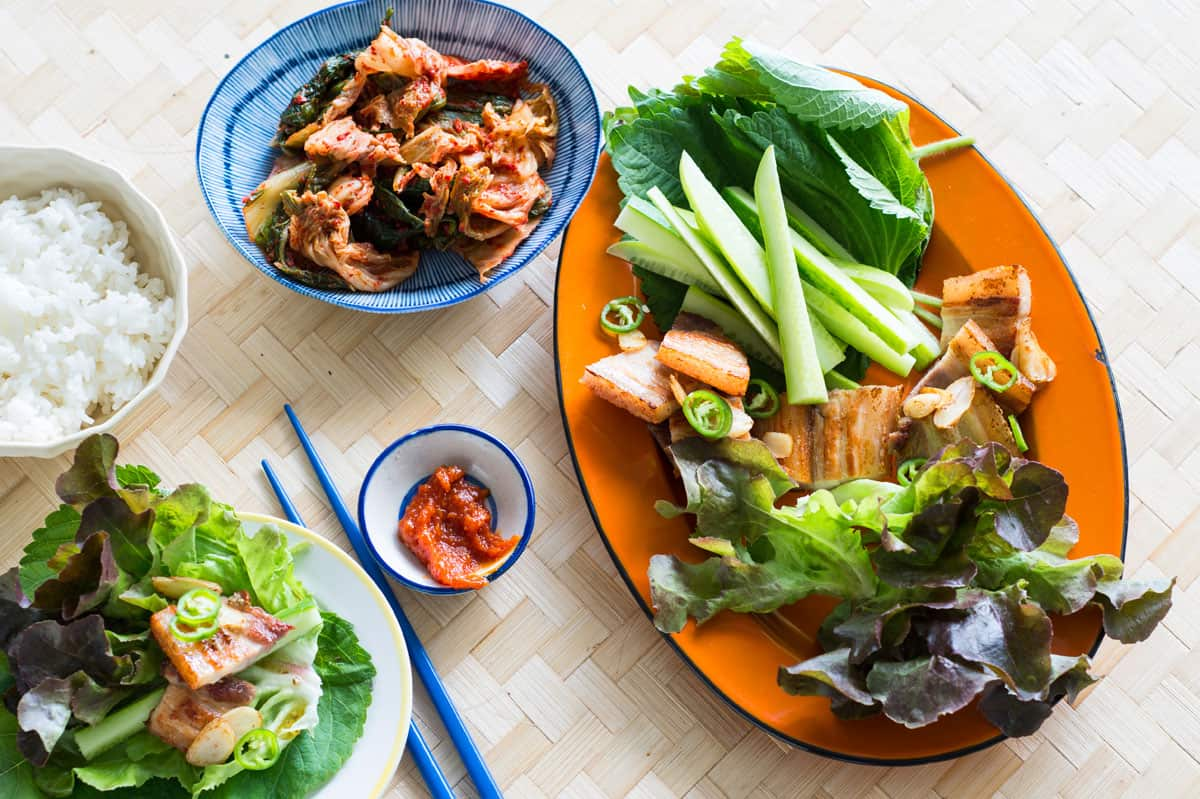
Share
SBS Food is a 24/7 foodie channel for all Australians, with a focus on simple, authentic and everyday food inspiration from cultures everywhere. NSW stream only. Read more about SBS Food
Have a story or comment? Contact Us

